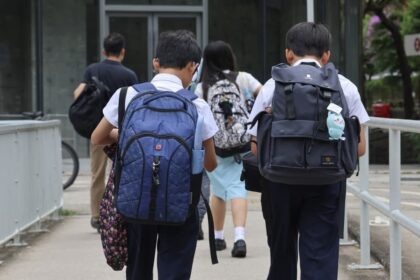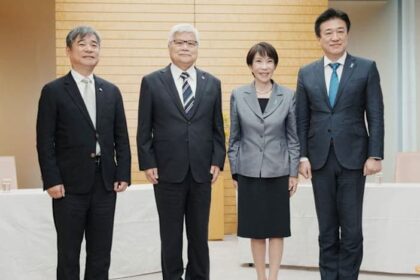Indonesian Migrant Workers in Japan: Controversy, Context, and the Road Ahead
Recent incidents involving Indonesian nationals in Japan have ignited a heated debate about the future of Indonesian migrant workers in the country. Reports of a robbery in Ibaraki prefecture, viral videos of unruly behavior in Osaka, and social media posts reflecting Japanese employers’ concerns have fueled speculation about a potential ban on Indonesian workers. Indonesian officials, however, have moved swiftly to dismiss these rumors, warning against the dangers of misinformation and emphasizing the broader context of labor migration between the two nations.
- Indonesian Migrant Workers in Japan: Controversy, Context, and the Road Ahead
- What Sparked the Controversy?
- Indonesia’s Migrant Workforce: A Vital Economic Link
- Challenges of Integration and Cultural Adaptation
- The Role of Misinformation and Social Media
- Health, Security, and Legal Protections
- Comparative Perspectives: Lessons from Other Countries
- Official Responses and Policy Initiatives
- Broader Implications: Migration, Economy, and Society
- In Summary
What Sparked the Controversy?
The controversy began in late June when Japanese police arrested three Indonesian nationals in connection with a robbery in Hokota, Ibaraki prefecture. The case, which had remained unsolved for nearly six months, gained significant media attention in Japan. Around the same time, footage of a group of Indonesians behaving disruptively in Osaka went viral on social media, further stoking public debate.
These incidents, though isolated, quickly became the subject of intense scrutiny. Social media posts—some containing inaccurate or exaggerated information—amplified concerns among Japanese employers and the general public about the ability of Indonesian workers to adapt to Japanese norms and workplace expectations.
Indonesian officials have been quick to respond. Abdul Kadir Karding, Indonesia’s Minister for the Protection of Migrant Workers, cautioned against letting the actions of a few individuals tarnish the reputation of hundreds of thousands of law-abiding Indonesian workers. As quoted by state news agency Antara, he said:
“Don’t let just three people cause hundreds of thousands of potential Indonesian migrant workers to become victims. This is made worse by posts containing inaccurate data.”
The minister’s remarks highlight the risk of overgeneralization and the potential for misinformation to harm the livelihoods of many Indonesians seeking work abroad.
Indonesia’s Migrant Workforce: A Vital Economic Link
Indonesia is one of the world’s largest sources of migrant labor, with millions of its citizens working overseas. According to official estimates, there are over five million Indonesians working abroad illegally, a figure that matches the number of registered migrant workers. These workers are often hailed as “remittance heroes” for the billions of dollars they send home each year, supporting families and contributing to the national economy.
Japan, facing a rapidly aging population and acute labor shortages in sectors like nursing care and manufacturing, has become an increasingly important destination for Indonesian workers. The Japanese government has actively sought to recruit Southeast Asian workers, including Indonesians, to fill critical gaps in its workforce. For example, starting in fiscal year 2025, Japan plans to establish nursing care education programs in Indonesia and subsidize travel expenses for care workers, in response to projections that the country will lack up to 570,000 nursing care workers by 2040.
Despite these opportunities, the migration process is fraught with challenges. Many Indonesian workers go abroad without the necessary skills or language proficiency, making them vulnerable to exploitation and abuse. Minister Karding has emphasized the need for better training and certification, as well as the importance of using legitimate placement channels to ensure worker safety and legal protection.
Challenges of Integration and Cultural Adaptation
One of the central issues in the current controversy is the question of how well Indonesian workers adapt to Japanese cultural norms and workplace expectations. Japan is known for its strict social etiquette, hierarchical work culture, and emphasis on group harmony. For many foreign workers, including Indonesians, navigating these expectations can be challenging.
Research on Muslim Indonesian professionals in Japan reveals that while most do not face significant discrimination, they often have to negotiate their religious and cultural identities in the workplace. For example, practices like nomikai (after-work drinking parties) can pose dilemmas for Muslim workers who abstain from alcohol. Some choose to participate without drinking, while others find ways to balance their religious observance with social integration. The presence of Indonesian workers is gradually contributing to greater diversity and inclusivity in Japanese workplaces, with some companies now providing prayer rooms and other accommodations.
However, not all Indonesian workers are highly skilled professionals. Many are employed in low-wage, labor-intensive jobs under programs like the Technical Intern Training Program (TITP), which has been criticized for its restrictive conditions and vulnerability to abuse. Language barriers, lack of support networks, and unfamiliarity with Japanese laws can leave workers isolated and at risk.
Retention and Workplace Challenges
Japanese companies are increasingly aware of the need to attract and retain foreign workers. Some, like Eat & Holdings Inc., offer furnished housing, language assistance, and financial incentives to make foreign workers feel welcome. The government is also reforming its foreign trainee program, aiming to allow more flexibility and job mobility for workers. Surveys indicate that while Vietnamese workers often leave due to wage dissatisfaction, Indonesians and Myanmar nationals cite difficulties in workplace relationships as a primary reason for resignations. Retention rates improve significantly after the first year of employment, suggesting that initial adaptation is the most challenging phase.
The Role of Misinformation and Social Media
The recent incidents in Japan have been amplified by social media, where posts—sometimes containing misleading or false information—can quickly go viral. This has contributed to a climate of suspicion and anxiety, both among Japanese employers and Indonesian workers. Officials in Jakarta have warned that such misinformation can have serious repercussions, potentially jeopardizing the prospects of thousands of Indonesians seeking work overseas.
Experts caution that overreacting to isolated incidents risks undermining the broader benefits of labor migration for both countries. As Minister Karding noted, it is important not to let the actions of a few individuals dictate policy or public perception. Instead, a balanced approach that addresses legitimate concerns while protecting the rights and dignity of migrant workers is needed.
Health, Security, and Legal Protections
Beyond cultural adaptation, Indonesian migrant workers face other significant challenges, including health risks and legal vulnerabilities. Studies have shown that returning migrant workers can be a high-risk group for carrying and spreading infectious diseases such as hepatitis, HIV/AIDS, tuberculosis, and COVID-19. Indonesia’s biosecurity policies, while improved during the pandemic, remain inconsistently enforced, especially for undocumented workers. This poses risks not only to public health but also to the reputation of Indonesian workers abroad.
Legal protections for migrant workers are another area of concern. While Indonesia has made efforts to improve the capacity and safety of its workers, many still go abroad without adequate skills or legal documentation. This makes them susceptible to exploitation, human trafficking, and abuse. The Indonesian government has implemented digital systems like SISKOP2MI to provide protection services, but unregistered workers remain outside the safety net.
On the Japanese side, the government is working to replace the criticized TITP with a new system by 2027, which will allow job transfers and require participants to acquire skills to transition to the skilled worker program. However, challenges remain, including wage dissatisfaction, workplace integration, and access to legal recourse in cases of abuse or unfair dismissal.
Comparative Perspectives: Lessons from Other Countries
The challenges faced by Indonesian workers in Japan are not unique. Vietnamese workers, for example, have also struggled with high migration costs, exploitative brokers, and harsh working conditions. Many incur heavy debts to secure jobs in Japan, leading to disappearances and involvement in illegal activities. The Japanese government is seeking to reform its trainee program to address these issues, but the high cost of migration remains a significant barrier.
Countries like South Korea and the Philippines have implemented more robust protections for their migrant workers, including government-to-government recruitment agreements and support services. These models could offer valuable lessons for Indonesia and Japan as they seek to improve the safety and well-being of migrant workers.
Official Responses and Policy Initiatives
In response to the recent controversy, Indonesian officials have reiterated their commitment to improving the skills and safety of migrant workers. Minister Karding has called for enhanced training, certification, and foreign language instruction, as well as stricter enforcement of legal placement channels. He has also emphasized the importance of registering workers in the SISKOP2MI system to ensure they receive protection and support.
Japan, for its part, is expanding the number of fields eligible for skilled worker visas and plans to admit up to 820,000 foreign nationals under these visas over the next five years. The government is also encouraging companies to provide better support for foreign workers, including housing, language assistance, and family services.
Broader Implications: Migration, Economy, and Society
The debate over Indonesian migrant workers in Japan touches on broader issues of migration, economic development, and social integration. Labor migration is a vital economic lifeline for many Indonesian families and a crucial source of labor for Japan’s aging society. However, it also raises complex questions about cultural adaptation, legal protection, and the responsibilities of both sending and receiving countries.
As both nations navigate these challenges, the need for balanced, evidence-based policies is clear. Overreacting to isolated incidents risks undermining the benefits of migration for both countries. Instead, a focus on skill development, legal protection, and mutual understanding can help ensure that labor migration remains a positive force for individuals and societies alike.
In Summary
- Recent incidents involving Indonesian nationals in Japan have sparked debate and speculation about a possible ban on Indonesian workers, which officials have dismissed as unfounded.
- Indonesia is a major source of migrant labor for Japan, especially in sectors facing acute labor shortages such as nursing care.
- Challenges for Indonesian workers include cultural adaptation, language barriers, legal vulnerabilities, and health risks.
- Both Indonesia and Japan are taking steps to improve training, legal protections, and support services for migrant workers.
- Misinformation and social media have amplified concerns, highlighting the need for balanced, evidence-based responses.
- Comparative experiences from other countries suggest that robust protections and government-to-government agreements can improve outcomes for migrant workers.
- The broader context of labor migration underscores its importance for economic development and social integration in both Indonesia and Japan.












